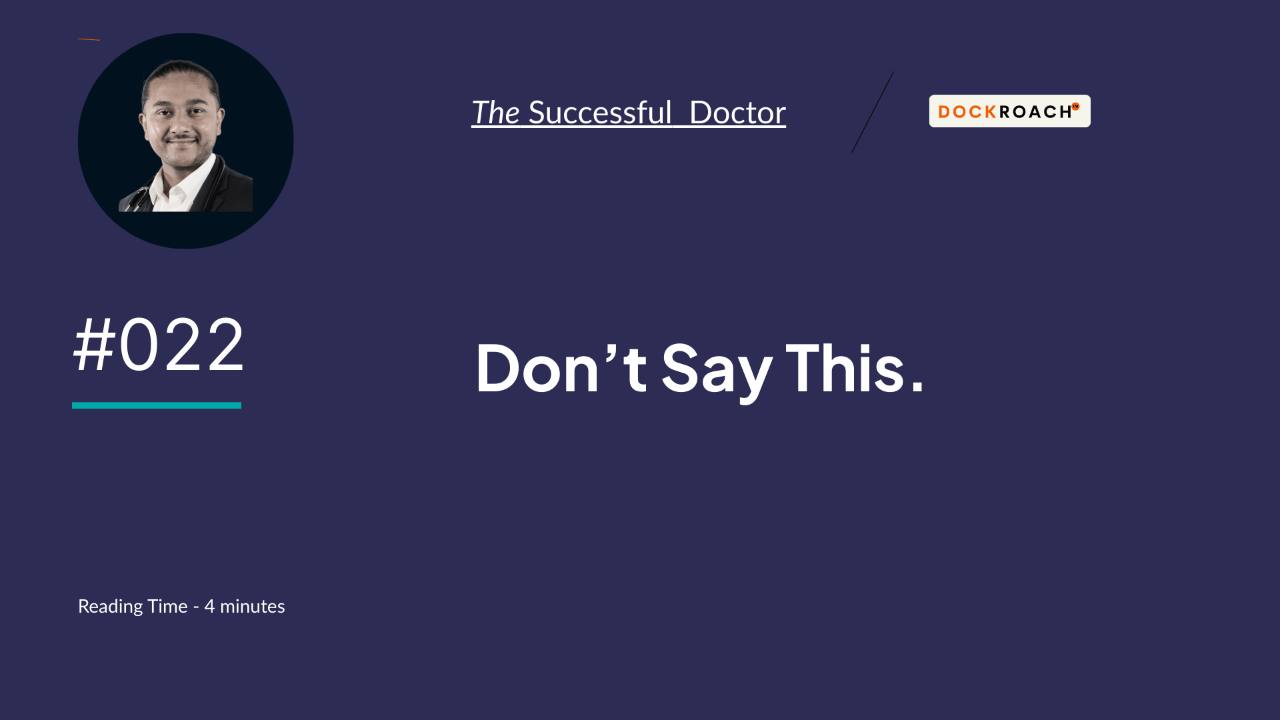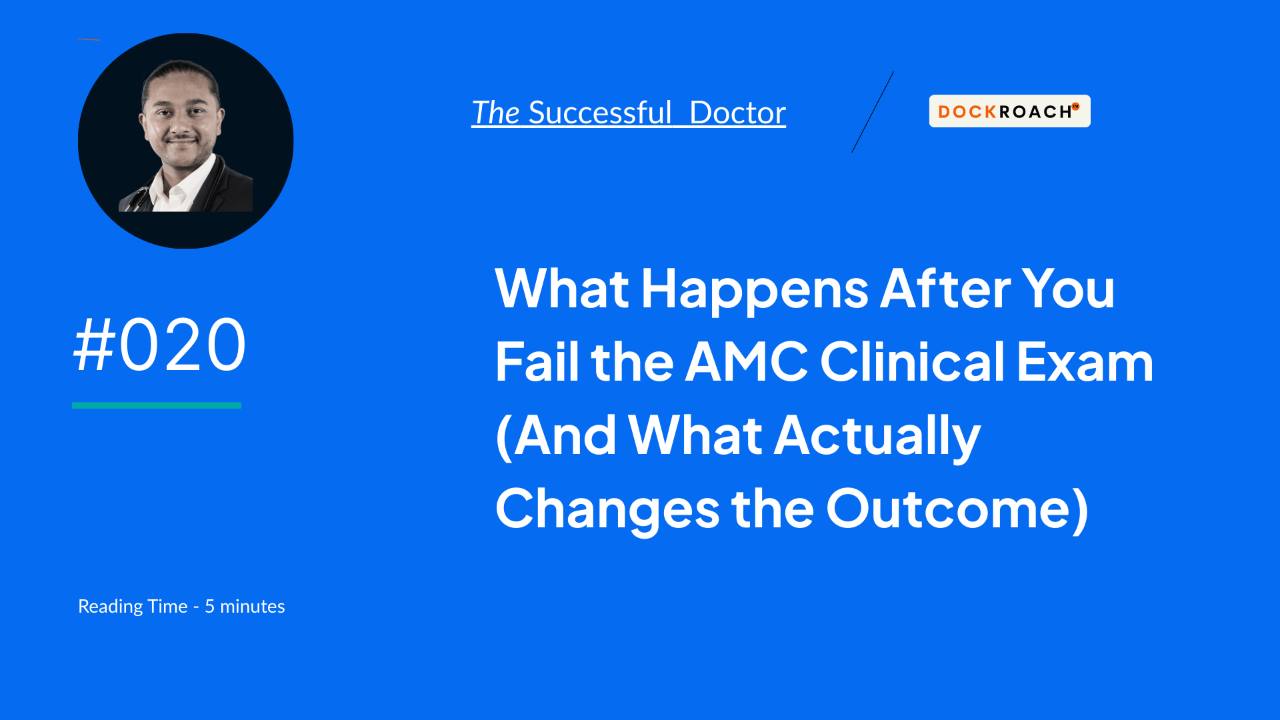3 Highly Effective Tips to Maintain Preparation Momentum
Read time: 4 minutes
Do you ever feel your motivation start strong… but fade halfway through exam prep?
Today, I’m going to show you 3 highly effective tips to build — and sustain — unstoppable momentum in your AMC Clinical Exam preparation.
These strategies are time-tested, emotionally intelligent, and grounded in what actually works — for myself and the candidates I’ve coached who passed with clarity and consistency, not last-minute panic.
Momentum is the secret behind consistent progress.
When it drops, even strong candidates stall — not because they lack knowledge, but because they lose rhythm, focus, and confidence.
It’s not always about discipline.
Many IMGs stall because they’re overwhelmed by trying to balance family, work, and exam prep — or because exhaustion, mental blocks, and self-doubt creep in.
When you master momentum, you don’t just study — you train with purpose, flow, and power.
If you want better results, stop focusing on intensity — and start building systems.

Systems create consistency. And consistency wins.
The 3 Highly Effective Tips
-
Set clear, specific goals — 5 role plays per set, build to 5 sets/day by exam month.
-
Build cadence with the Role Play (RP) → Study → RP system — momentum over randomness.
-
Leverage preparation tools — question banks, mnemonics, and recall software.
Let’s break these down.
1. Set a Clear Daily Goal: 1 Set = 5 Role Plays

Start with one daily set: 5 role plays back-to-back.
Then scale up — aim for 5 full sets a day in the month leading up to your exam.
Why this works:
It trains your brain under pressure — even when you’re not fully ready.
It builds “exam muscle memory,” forcing your mind to stretch, respond, and adapt like it will on exam day.
Often, you’ll feel underprepared.
That’s the perfect training ground.
This is when the subconscious mind takes over — pulling insights from past experience, readings, and even knowledge you didn’t know you still had.
“The subconscious mind is the doorway to infinite intelligence.”
— Dr. Joseph Murphy, The Power of the Subconscious Mind
Quick tip: Override anxiety with 'The Law of Emotional Substitution'
When fear creeps in, speak this with conviction:
“I feel great today. I’m going to nail this case. I can do it. I can do it!”
Let that emotional tone guide your first role play set.
Eventually, it becomes your default setting.
2. RP → Study → RP Momentum System

This is your cadence for compounding progress:
Step 1: Complete 1 set (5 back-to-back role plays) with minimal breaks — about 90 minutes total.
Step 2: Follow with focused study — review recall steps, refine management, and reinforce key mnemonics. Morning study sessions work best for peace, clarity, and retention.
Step 3: Repeat.
Why this works:
It mimics the real exam — 4 stations in the longest succession, no pause.
Practicing 5 builds stamina, sharpens timing, and conditions your brain to deliver under pressure.
This is just the right level of difficulty to turn pressure into precision.
Start small:
New to this?
Begin with 1 set per day and 15 minutes of review.
As you grow, increase both the sets and study duration.
You’re building resilience and retention — day by day.
Want structure?
The Optimal Role Playing Planner (inside the Essential Package) helps you track sets, habits, and patterns — so your system runs on autopilot.
3. Use Smart Tools to Accelerate

Most candidates waste energy deciding what to study.
You don’t have to.
Use smart, low-friction tools that remove decision fatigue and sharpen recall.
✅ 100-Question Role Play Bank
Cover system-specific cases and task types with structured flow.
✅ Mnemonic Tools
Quickly recall frameworks for history, PE, and explanation tasks.
✅ Anki (Flashcard System)
Reinforce structured answers through spaced repetition.
Example – Anki Setup:
Task 3: Counsel the patient on management of prostate cancer.
(75-year-old man, Gleason stage 1 prostate adenocarcinoma)
Flashcard Answer (Use bullet points for clarity and retention):
-
Condition: You have a slow-growing type of cancer. (Draw a diagram of the prostate when explaining).
-
Commonality: Most men your age live normal lives with it.
-
Next Step: We’ll talk through all your options together. Firstly. . .
Use this bullet-point format to make answers easier to review, recall, and refine over time.
Tip: Create Anki cards for task-specific answers, empathy phrases, and mnemonics — this primes you to think, speak, and respond under exam conditions.
“Success is the sum of small efforts, repeated day in and day out.”
— Robert Collier
What would happen if you ran 5 sets a day — for just 7 days?
Want the question bank, planners, and tools that make this easier?
➡️ Get the Essential Package here — and gain momentum where it counts most.
That’s all for now.
Keep showing up.
I’ll see you in the next fortnight.






